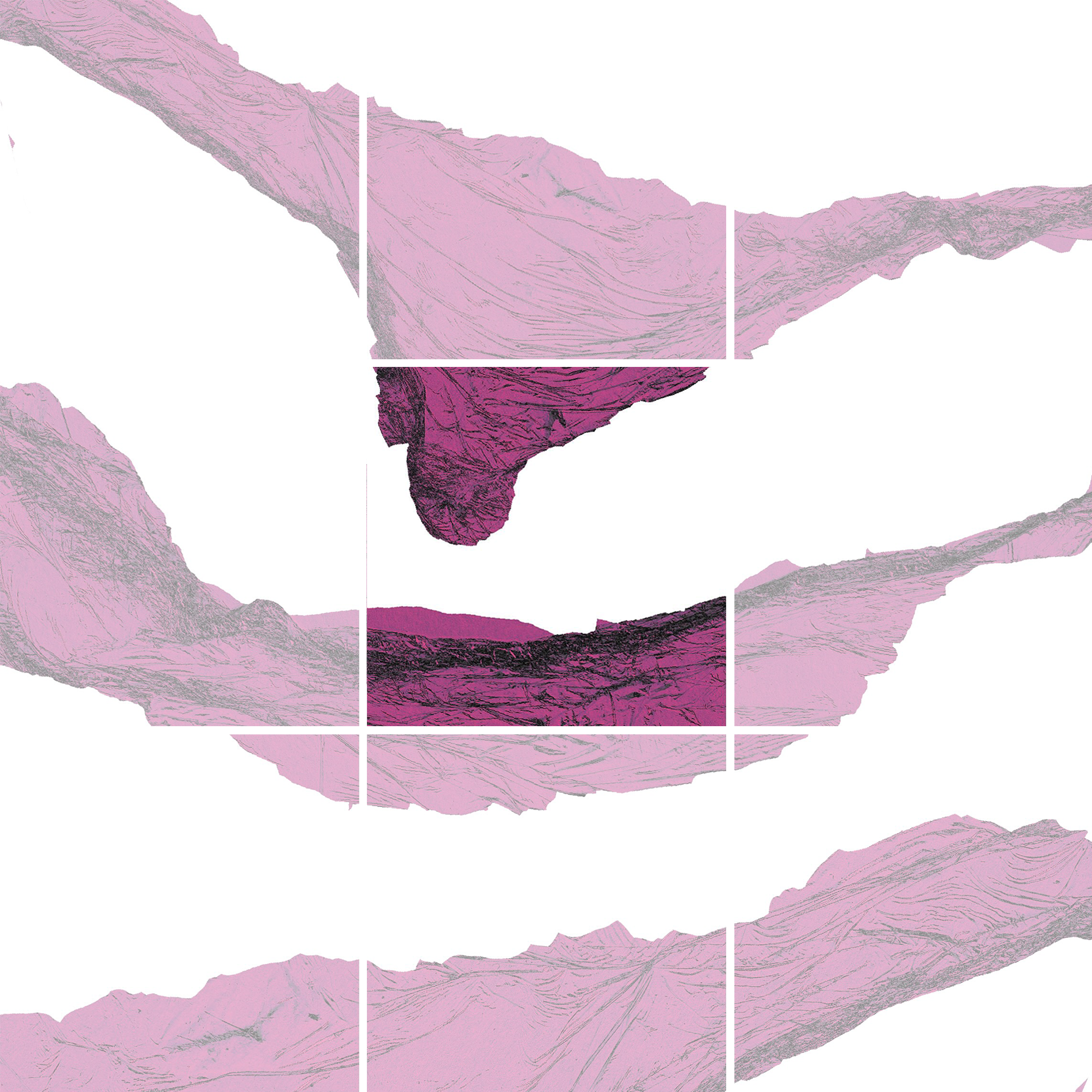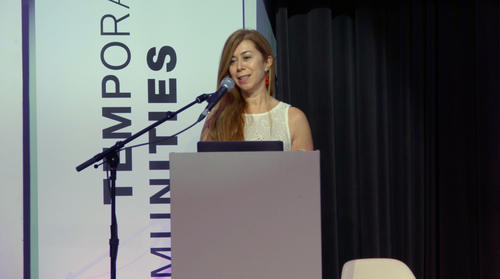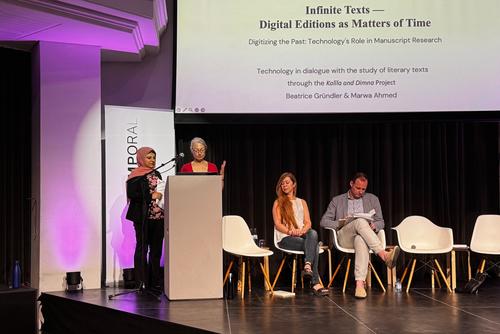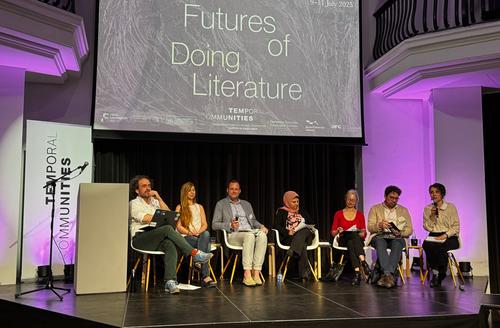10 July | Panel: Infinite Texts – Digital Editions as Matters of Time
Part of the EXC 2020 Annual Conference 2025 "Futures of Doing Literature", 9–11 July 2025.
By shifting scholarly attention from the manifestation of a clearly readable text as the most accurate and authoritative expression of a work to 'fluid textual editing', editors and publishers are beginning to embrace the full range of a work's textual moments, respecting it as inherently flexible, adaptable and relational. As current practices compel critical reflection on our understanding of textual dynamics, editorial authority and the life cycle of scholarly editions themselves, it is clear that their creation and maintenance is closely tied to the political landscape of scholarly communication – including issues of governance, equitable access, inclusivity and power – as well as the economic implications of funding, labour and sustainability.
This panel explored the engaging ways in which scholars are now fathoming the possibilities of text encoding, interface building and data management in order to move beyond a linear model of rendering texts readable as fixed products, aiming instead to establish an open-ended framework for research and publication that is receptive to multiple (even as yet unforeseen) scenarios of interaction, integration and scholarship.
Chair: Yvonne Albers (Research Area 1: Competing Communities) and Bart Soethaert (Research Area 5: Building Digital Communities) With a Response by Till Grallert (Digital History | Humboldt-Universität zu Berlin).
Image Credit: S. Messner 2025 for EXC 2020 using a photo by Valeria Reverdo on Unsplash.
Future-Proofing Digital Editions: A Minimal Computing Approach
Gimena del Rio Riande (Digital Scholarly Editions | National Scientific and Technical Research Council, Buenos Aires (CONICET)/EXC 2020 Fellow 2025)
This contribution highlighted the crucial role of material, institutional and epistemological contexts in the production of digital editions. Moving beyond universalist, Anglo-European paradigms, it argued for decentralised and community-driven editorial practices that value local scholarly traditions, shared resources and linguistic diversity. Using collaborative digital projects in Latin America as a case study, the presentation demonstrated how a focus on minimal computing, the use of open technologies, and ownership of data and code can help to envision sustainable, low-infrastructure futures for digital editions.
"Kalīla and Dimna", Simultaneously and Across Time
Beatrice Gründler (Arabic Studies | Freie Universität Berlin/EXC 2020) & Marwa M. Ahmed (Arabic Studies | Freie Universität Berlin)
Kalīla and Dimna is a fable collection that oscillates between rulers' advice and popular philosophy. It has spread over centuries into over forty languages, with the Arabic translation serving as the basis. However, this version itself became fluid, and its surviving witnesses from the thirteenth to the twentieth century must be viewed jointly in order to fully embrace their widely differing instantiations. The method to achieve this is a multi-text edition that momentarily freezes the Arabic versions of different times and places in apparent simultaneity. These, however, are in fact snapshots of diverging processes of intervention by individual redactors, whose identities must be painstakingly extracted from their written performances. The edition is itself the outcome of a years-long dialogical process of research, and to view it – horizontally between versions rather than vertically along the plot – calls for a new way of reading.
'You Must Have Plenty of Sea-Room to Tell the Truth in': 'Hawthorne and His Mosses', Textual Fluidity and Adaptive Reading in Digital Editions
Christopher Ohge (Digital Humanities | University of London/EXC 2020 Fellow 2025)
Herman Melville's Hawthorne and his Mosses has been the focus of many scholarly studies, including a recent comprehensive analysis of marginalia in the work he reviewed. Nevertheless, Melville's process of reading and writing about Hawthorne has not been fully investigated with computational methods. This presentation showed the first digital edition of Hawthorne and his Mosses along with text analyses that compare the data of Melville's reading to his manifesto. Rather than establishing Melville's final intentions or privileging the first published version in the magazine Literary World (1850), this Melville Electronic Library edition approaches it as a fluid text, covering the full range of authorial, editorial and adaptive revision, from Melville's marginalia to the manuscript fair copy and subsequent publications of his essay, including visualisations and statistical results. Echoing Melville's call for "plenty of sea-room to tell the truth in," the edition aims to expand our knowledge of Melville's creative process and the numerous textual interventions that followed it.


